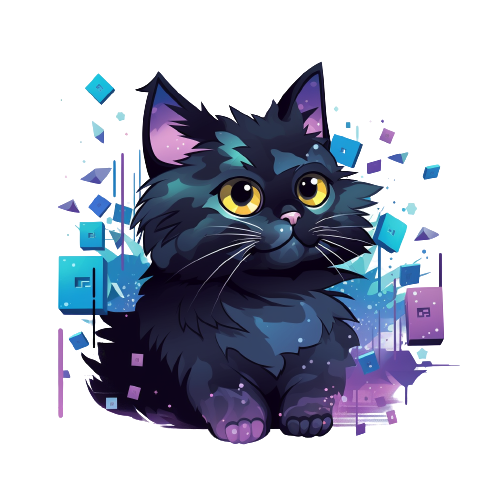Welcome to the cutting-edge world of artificial intelligence (AI) and its incredible impact on the entertainment industry. From the creation of movie scripts to the development of hyper-realistic video games, AI is truly revolutionizing entertainment as we know it.
AI, a fast-growing branch of computer science, focuses on the creation of smart machines with the ability to learn and adapt. A subset of AI, machine learning, is an algorithm-training process that bases predictions on data, with no explicit programming needed.
By exploring patterns in data, machine learning can identify trends and make amazingly accurate predictions. While AI has already made major strides in industries like healthcare, finance, and transportation, it’s also making a huge splash in the world of entertainment.
From films to video games, machine learning is changing the way we both produce and enjoy entertainment. In film, AI can help at every stage of production, from script creation based on audience preferences, to editing via software that can automatically recognize and categorize footage. In the gaming world, machine learning is enhancing player experiences with the development of lifelike virtual worlds.
Some may worry about AI taking jobs from human workers, but others see these advancements as unique opportunities to explore new levels of creativity. It’s clear that AI and machine learning are only beginning to transform the entertainment industry, and the future is brimming with possibilities.
The Impact of AI on Entertainment Industries
In today’s rapidly evolving digital landscape, artificial intelligence (AI) and machine learning have emerged as powerful tools that are revolutionizing the entertainment industry. From filmmaking to gaming, AI is transforming the way we create and consume content.
AI in Filmmaking
In the realm of filmmaking, AI is making its presence felt in various stages of production. During the pre-production phase, AI technology can analyze scripts and predict audience reactions, enabling filmmakers to make informed decisions and tailor their content to specific preferences. This not only saves time and money but also increases the chances of creating engaging and captivating films.
Additionally, AI-powered image recognition software plays a crucial role in the editing process. It can automatically identify footage, making it easier for editors to navigate through vast amounts of content and select the most impactful scenes. This streamlines the editing workflow and enhances efficiency.
Furthermore, AI is revolutionizing post-production tasks such as color grading and sound mixing. With the help of machine learning algorithms, filmmakers can achieve stunning visual effects and refine the audio experience, resulting in a more immersive and captivating cinematic experience for the audience.

From above of crop unrecognizable person with pencil drawing picture on table with scissors and colors (Photo by Anna Shvets)
AI in Gaming
Gaming is another field in the entertainment industry that has been greatly influenced by AI and machine learning. From game design to player experience, AI has opened up new frontiers of innovation and creativity.
Game developers can harness the power of machine learning algorithms to generate realistic virtual worlds and simulate real-world environments. This automated graphic rendering technique creates visually stunning games that transport players into immersive and lifelike gaming experiences.
Moreover, AI-powered algorithms can adapt gameplay in real-time, making each gaming session unique and tailored to the individual player. This personalization enhances engagement and keeps players hooked for longer durations.

Male teen using VR device (Photo by Eren Li)
As AI continues to advance, there is a growing debate surrounding the potential impact on job security in the entertainment industry. While automation may replace certain manual labor roles, such as film editors or game designers, it also presents opportunities for humans to explore their creativity in unprecedented ways.
AI and machine learning augment human capabilities and enable creators to push the boundaries of their imagination. By embracing these technological advancements, the entertainment industry can unlock new levels of efficiency, innovation, and artistic expression.
With AI’s ability to analyze data, predict trends, and personalize experiences, the future of the entertainment industry holds immense promise. By leveraging AI in filmmaking and gaming, content creators can captivate audiences like never before and pave the way for a more immersive and dynamic entertainment landscape.
AI in Film
The film industry has been revolutionized by the integration of Artificial Intelligence (AI) into various stages of the filmmaking process. From pre-production to production and post-production, AI technology is transforming the way films are created, enhancing efficiency, and pushing the boundaries of creativity.
AI in Pre-Production

In the pre-production stage of filmmaking, AI is utilized to analyze scripts and predict audience reactions. This powerful technology enables filmmakers to make informed decisions and optimize their storytelling techniques before production even begins. By analyzing vast amounts of data, AI algorithms can generate insights into audience preferences, helping filmmakers tailor their scripts to maximize engagement and create captivating narratives.
AI in Production
During the production stage, AI plays a crucial role in streamlining various tasks and enhancing visual effects. One notable application of AI in production is camera tracking software powered by machine learning. This technology enables filmmakers to seamlessly integrate special effects into live-action footage by accurately tracking camera movement. By automating this process, filmmakers can achieve stunning visual effects and save valuable time and resources.

A Happy Man in a Black Suit Holding His Trophy (Photo by RDNE Stock project)
Another remarkable use of AI in production is facial recognition. With the help of AI-powered facial recognition technology, directors can capture more nuanced performances from actors. This technology analyzes facial expressions and movements, providing valuable insights for directors to fine-tune performances and enhance emotional depth in their films.
AI in Post-Production
In the post-production stage, AI is employed for various tasks, contributing to the refinement and polish of the final product.

Down Angle Photography of Red Clouds and Blue Sky (Photo by eberhard grossgasteiger)
One key application of AI in post-production is color grading. AI algorithms can analyze footage and automatically adjust colors, enhancing the overall visual aesthetic. This technology allows filmmakers to achieve consistent color grading throughout the film, saving time and ensuring a cohesive visual experience for the audience.
AI is also utilized in sound mixing, where it can analyze audio tracks and automatically adjust levels for optimal sound quality. This streamlines the sound mixing process, ensuring a balanced and immersive audio experience for viewers.
In conclusion, AI has transformed the film industry, revolutionizing the way films are made and enhancing creativity and efficiency in each stage of the filmmaking process. From script analysis to visual effects and post-production refinement, AI technology continues to push the boundaries of what is possible in the world of filmmaking.
AI in Gaming
Gaming has always been a popular form of entertainment, and with the advancements in technology, it has become even more immersive and realistic. One of the key factors driving this revolution is the integration of Artificial Intelligence (AI) into game development. AI has the ability to enhance every aspect of gaming, from game design to gameplay itself.
AI in Game Design
AI is revolutionizing the way games are designed. With the help of machine learning algorithms, game developers can create dynamic and engaging experiences for players. These algorithms analyze vast amounts of data to identify patterns and trends, enabling game designers to create more immersive and captivating worlds.
For example, AI can be used to generate procedurally generated content, such as levels, quests, and characters, resulting in endless possibilities for players. This not only saves time for developers but also ensures that each playthrough is unique and tailored to the individual player.
Furthermore, AI can assist in balancing game difficulty by analyzing player behavior and adjusting the game’s challenges accordingly. This adaptive difficulty ensures that players are constantly challenged without becoming frustrated or bored.
AI in Enhancing Gameplay
AI doesn’t just stop at game design; it also plays a crucial role in enhancing gameplay itself. Through machine learning, AI algorithms can analyze player behavior, preferences, and skill levels, allowing games to adapt and personalize the experience in real-time.
For instance, AI-powered NPCs (non-playable characters) can behave more realistically and intelligently, making the game world feel more alive. These NPCs can learn from player interactions, adapting their strategies and responses accordingly, creating a more immersive and challenging gameplay experience.
AI can also be used to improve player assistance systems. By analyzing player performance, AI algorithms can provide real-time feedback, tips, and hints, helping players improve their skills and enjoy the game to the fullest.
AI in Virtual Worlds
Virtual worlds are a fundamental part of many games, and AI is playing a significant role in creating and enhancing these worlds. AI algorithms can generate realistic landscapes, objects, and characters, making the virtual world feel more believable and immersive.
With AI’s help, game developers can create dynamic environments that change and evolve based on player actions, providing a more interactive and engaging experience. AI can also simulate realistic physics and behaviors, making the virtual world behave like the real world.

Man in Black Sweatshirt With Vr (Photo by mali maeder)
All in all, AI is transforming the gaming industry by revolutionizing game design, enhancing gameplay, and creating more immersive virtual worlds. The integration of AI technology in games has opened up a plethora of possibilities, making gaming experiences more captivating and enjoyable for players.
Conclusion
In conclusion, the integration of AI and machine learning in the entertainment industry, specifically in gaming and film, has ignited a revolution. These technologies have the power to transform the way content is created, distributed, and consumed. From generating scripts based on audience preferences to automating graphic rendering for immersive gaming experiences, AI is pushing the boundaries of creativity and efficiency. While concerns about job security may arise, there is immense potential for collaboration between humans and machines, allowing us to embrace these changes and explore new avenues of creativity. The future of entertainment is being shaped by AI, and it is an exciting time for both creators and consumers alike.



Leave a comment